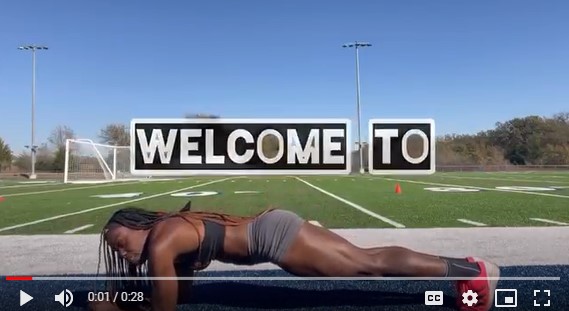5 Actionable Tips For Life After Sports

It may be difficult for athletes whose lifestyles have been defined by their involvement in sports for the majority of their lives, or at the very least for the past four years, to envision a future without sports.
Throughout their lives, they have been referred to as athletes by friends, family members, colleges, and the general public. However, when athletes graduate from college, many feel that a big part of their identity is erased from their memories.
To be successful as student-athletes in today’s environment, they must realize that they are multifaceted individuals with limitless potential.
To be successful, universities must provide enough resources to the holistic development of their student-athletes, including their minds and bodies, to better prepare them for life beyond sports.
Following are some steps that can help athletes transition from college to real-world easily:
Plan Ahead:
It’s conceivable that your views and objectives were formed to fit the community you were a part of. However, now that you have more freedom, it’s time to revisit your essential values and see what holds.
A good plan is as important as knowing where you’re going. So first, create a list of your aims and wishes, and then build your preferences and values. This firm planning will let you explore and develop your uniqueness.
Reduced Anxiety:
After quitting sports, athletes must first choose a new sport to have a happy and rewarding life. The talents and abilities that athletes have developed during sports practice are often transferable to a new area of endeavor. Competition, hard effort, honesty, and persistence may all be helpful in any profession; it is up to the player to retain an open mind and take an active role in a smooth transition to the new sport or discipline.
Maintain A Positive Attitude:
When confronted with significant life issues, our brains might get cluttered with opposing ideas. A mantra written someplace, such as on your reflection or in your wallet, is a good idea. Read it aloud or recite it to yourself when doubts begin to sneak in. Positive affirmations may also be beneficial.
Respect Your Emotions:
Your inability to engage in your sport while in college may leave you feeling frustrated. As a result, you may miss your teammates, friends, or the sense of satisfaction that comes with scoring or winning a goal. If you stop doing anything, consider it a loss. As a result, you may go through the grieving process’ five phases. Acknowledging one’s emotions is the first step in coping with and overcoming them.
Maintain Your Proactive Attitude:
When you accept responsibility for your life quality, you remove any possibility of being influenced by small daily life roadblocks.
In the face of life’s challenges, instead of reacting to them, adopt a proactive stance. Develop a more optimistic outlook instead, which will help you to pick up new skills and adapt to different circumstances.
There’s no need to worry about the reality that you work in the sales department of a small business. However, your athletic ability may still be used in creative ways in your daily life, such as motivating your peers or teammates to sell more or utilizing your leadership skills to inspire others to accomplish their best.
Conclusion
Discovering new things is the first step in rediscovering your true self. So try new things as frequently as possible and see whether you find yourself returning for more. And I’m interested to know why.
If you’re good at tossing a ball or performing a back hamstring, you’re probably good at a lot more. The secret here is to keep going. It’s easy to quit when you don’t feel like you’ve discovered your calling or are getting closer to your true self. It’s a lengthy procedure.
Begin to uncover new sides of your persona and abilities that you may not have previously known about. For example, knowing how to play a sport well means applying the same concepts to any other endeavor.
More to Read...
Building Your LinkedIn | How to Boost Your LinkedIn Profile’s Visibility
[dsm_gradient_text gradient_text="Building Your LinkedIn | How to Boost Your LinkedIn Profile's...
What Tools Do You Need To Have A Successful Job Interview
[dsm_gradient_text gradient_text="What Tools Do You Need To Have A Successful Job Interview"...
How to Create a Resume with Limited Experience
[dsm_gradient_text gradient_text="How to Create a Resume with Limited Experience"...
Tummy Tuesdays
[dsm_gradient_text gradient_text="Tummy Tuesdays " _builder_version="4.14.7"...
Tik Tok for career advice?
[dsm_gradient_text gradient_text="Tik Tok for career advice? " _builder_version="4.14.7"...
What does fitness mean for you?
[dsm_gradient_text gradient_text="What does fitness mean for you?" _builder_version="4.14.7"...






